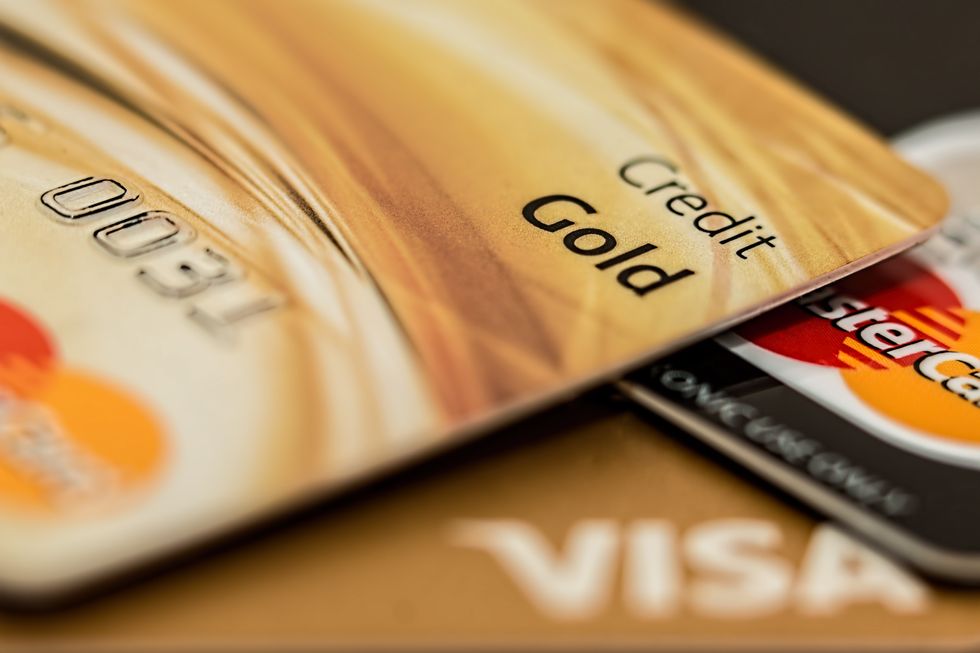Before I begin, this is in response to the New York Times Article, "Cash Might Be King, But They Don’t Care" by Andy Newman.
In the summer of 2017, I walked into a Sweetgreen, placed my order and headed to the register. “Anything else?” the woman asked, making eye contact with my salad, not me.
“No that’ll be it, thanks,” I said, handing her a crisp $20. Her eyes, still yet to meet mine, moved to the bill in my hand, and then at the register.
“We don’t take cash,” she said plainly and expectantly. I began to panic as a queue of impatient businessmen and women on their lunch break began to accumulate behind me. I shuffled through my bag, grabbed my debit card, placed it in her open palm, and within half a second it was back in my own.
“Next!”
In a perfect world, I would have had my debit card ready, there would have been no panicking, and the impatient businesspeople behind me would have just been businesspeople. In a utopian society, we all float from business to business, swiping our cards and tilting our Apple Watches at readers, paying for deli sandwiches and groceries on one universal medium. In that way, a place like Sweetgreen might be considered proactive, moving towards the future of payment and currency. No confusion, no counting, and nothing to hide.
In this way, a place like my own home base at Van Leeuwen Artisan Ice Cream might seem like the perfect culmination of new-age thinking: no cash, fewer options, fast service, and consistency, consistency, consistency. But, in the year 2018, we aren’t quite there yet. We are near this, but especially in a neighborhood like the East Village (the home of both my Van Leeuwen and the Sweetgreen), there’s a melting pot of old and new. While we may be cash-free, next door is cash only and next to their door is a business with a twelve dollar card minimum. In a neighborhood that prides itself on this sort of diversity, it proves ineffective to deny people the right to pay with cash.
Looking back on my interaction with the woman at Sweetgreen, some five months before we went “card only,” or, in our euphemistic terms, “cash-free,” it seems understandable that she would be diverting eye contact as I handed her cash to pay for my meal. Especially with a line and the need for expediency, keeping our confrontation quick and impersonal was, for her especially, seemingly the most effective.
Working at a cash-free business, some of my favorite responses include phrases like:
“I don’t understand; why would you do that?”
“That’s awful, you really think you can get away with that?”
“Why in the @#$%#^&&%%&&^%$ would you think that’s a good idea?”
To which I have to politely respond with the royal “we” in order to explain why “we” decided to switch over so that I, on behalf of the “we,” can receive a slurry of aggressive comments about us being cash-free. It had nothing to do with me or my opinion but given my particularly low-rank as a member of the company, it makes me the target of the diatribe. Perhaps if I didn’t look up from our register, and perhaps if I just stared at the chip reader and said “No cash!” perhaps then they wouldn’t direct so much overwhelmed aggression at me.
I am not in charge of the finances of our cash-free businesses. Given the amount of ice cream I know has been given away to customers that are young children with their mother’s after-school cash, or the amount of coffee given to old, neighborhood locals (from when the village was still Eastern European) or off-the-books workers who can’t say much to me when I respond to their pile of quarters with a “We are actually cash free…if that’s okay,” but whose looks of confusion and horror speak enough to let me say, “It’s okay, really, you can have it. Have a nice day”— it’s safe to say that cash-free isn’t all for the better.
Maybe it’s easier because you don’t have to count cash at the end of the night, or worry about counterfeit hundred dollar bills, or deal with people paying in pennies. Maybe our accountant should pay better attention, and maybe there’s a reason that woman is paying in loose change; maybe our tips not being taxed would be a not-bad thing. Cash-free or cash-less or card-only means that there are people who can’t eat at your establishment, and any form of discrimination, intentional or not, comes at a moral cost.





 The minimum wage is not a living wage.
StableDiffusion
The minimum wage is not a living wage.
StableDiffusion
 influential nations
StableDiffusion
influential nations
StableDiffusion













